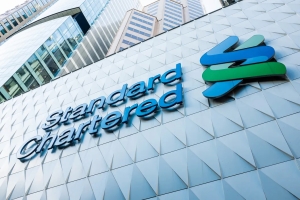It is no surprise that Standard Chartered wants to explore opportunities in digital banking in Asia’s foremost financial centers of Hong Kong and Singapore. While it would be technically possible for the bank to directly launch an online bank, Standard Chartered has opted for a different approach, instead taking strategic stakes in Hong Kong-based Mox Bank and Singapore-based Trust Bank.
This approach allows Standard Chartered to test out the waters for digital banking without the risk of cannibalizing its own brand. Indeed, the UK-based bank offers a bevy of online banking services under its name, including the SC Mobile Banking app. Both the Mox Bank and Trust Bank brands are different enough from Standard Chartered that an existing retail customer of the British lender could open a new account with either one of the digibanks and find it to be somewhat complementary.
Mox competes in a crowded Hong Kong banking sector historically dominated by a handful of incumbents including Standard Chartered. That said, perhaps Mox is benefiting from its association with the British lender because it appears to be performing better than most of the other seven digital banks in Hong Kong. Standard Chartered CEO Bill Winters said in November that Mox will break even at the end of 2023 or early 2024. Having accumulated 400,000 customers, Mox “is gaining tremendous momentum,” Winters added.
Of course, less important than retail customer numbers is customer activity, especially the use of the account for significant deposits and the purchase of different products. After all, many virtual bank clients are inactive after opening their accounts, despite high acquisition costs. They may sign up to benefit from some kind of attractive promotion/subsidy/gimmick, and then resume banking with their main provider.
Mox seems to be betting on wealth management for the somewhat affluent – and that may be a good strategy. Large banking groups typically require private banking and wealth management customers to have at least US$1 million of investable assets. Mox wants to target Hong Kong’s 1.8 million residents with about HK$300,000 to HK$1 million of net liquid assets to invest. Of course, so do Mox’s competitors Livi Bank and ZA Bank.
As for Standard Chartered’s Singapore digibank, Trust, it is still early days. Trust launched less than six months ago, though last time we checked, Trust said it had reached 650,000 customers – more than 10% of the population of Singapore.
However, compared to Mox, the Trust value proposition seems even less clear. Because Singapore’s largest supermarket chain FairPrice Group is the other shareholder in Trust, the digital bank is highlighting the opportunity for customers to get special deals on groceries, which seems like an unusual reason to open a new bank account.

